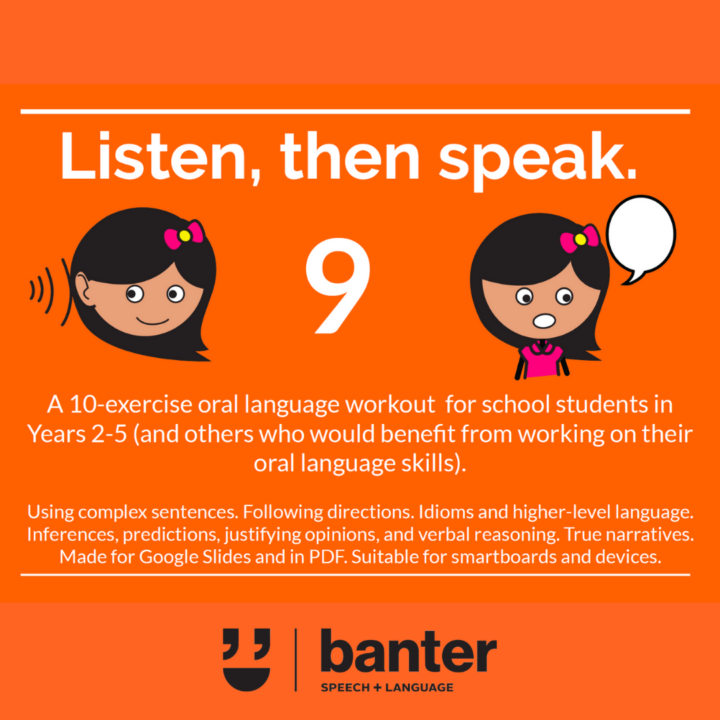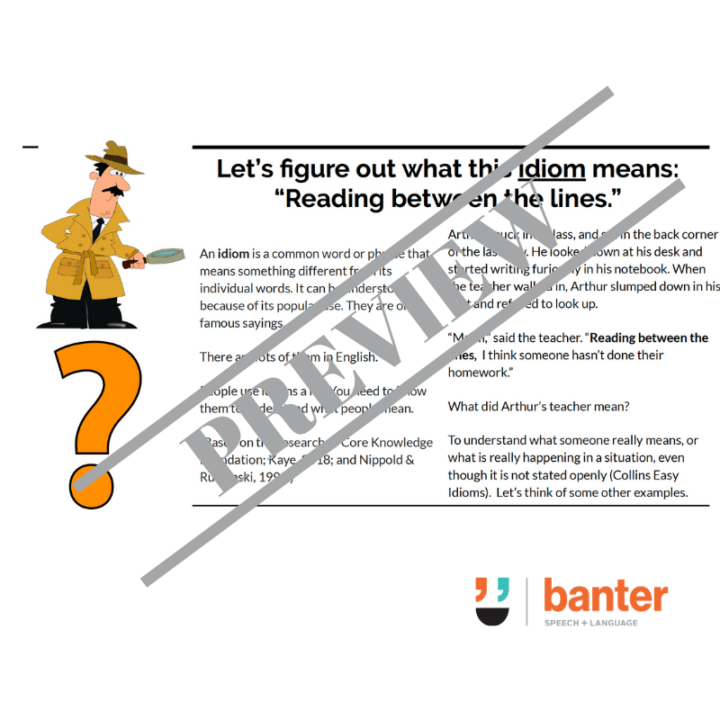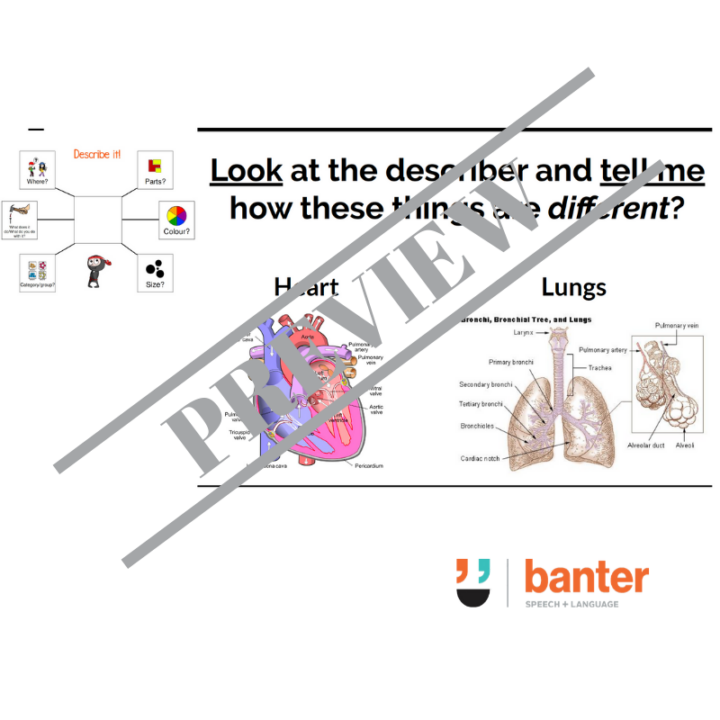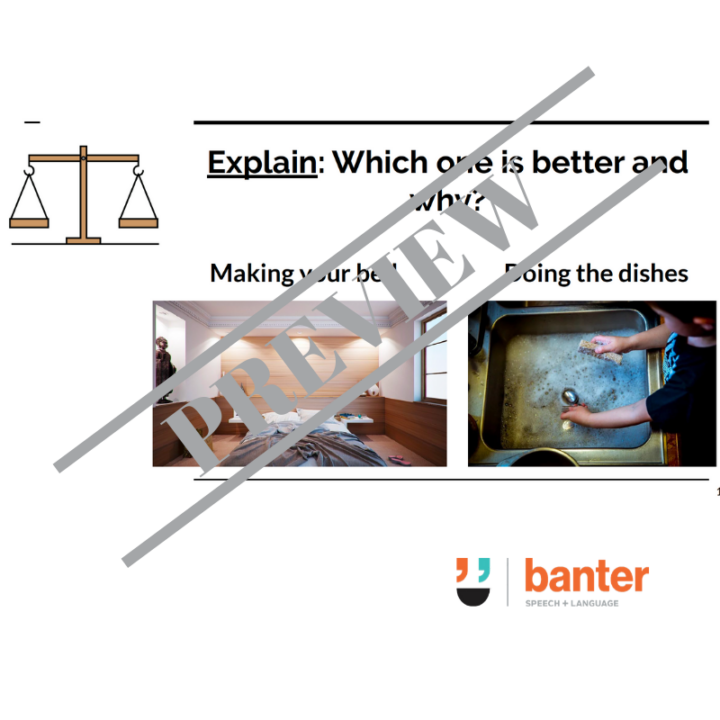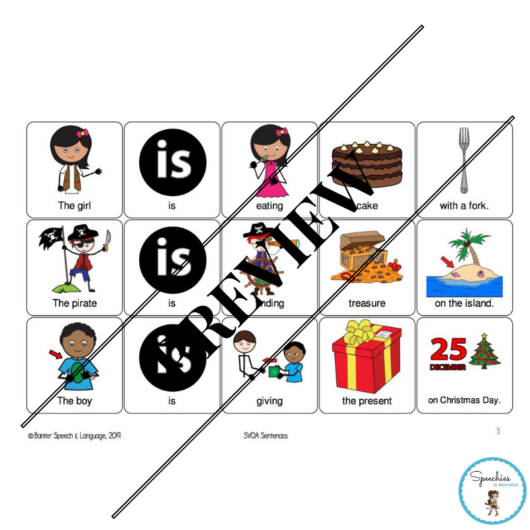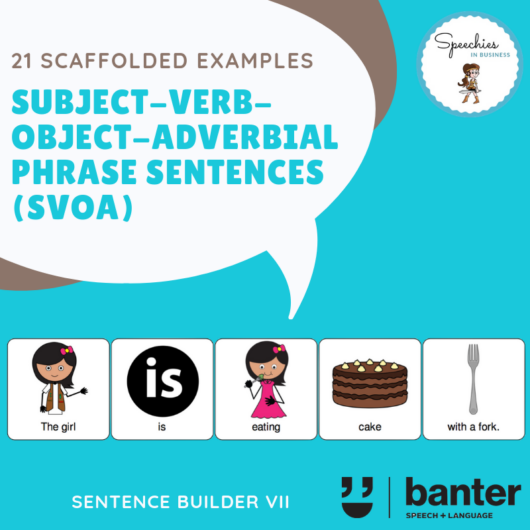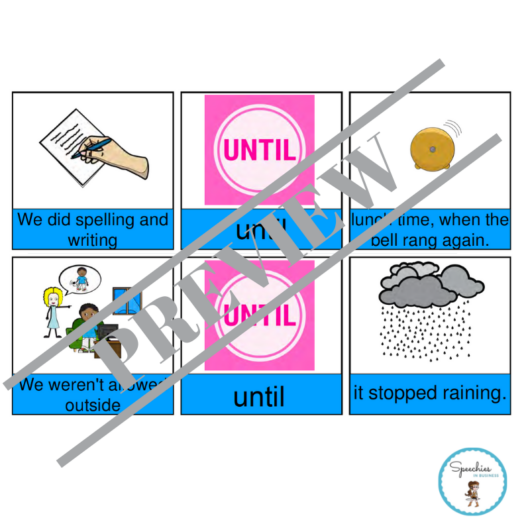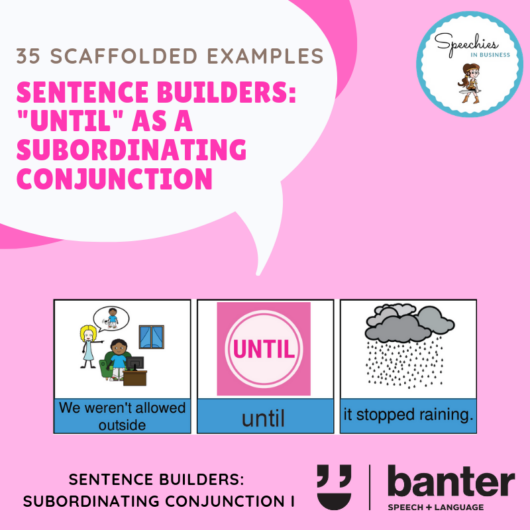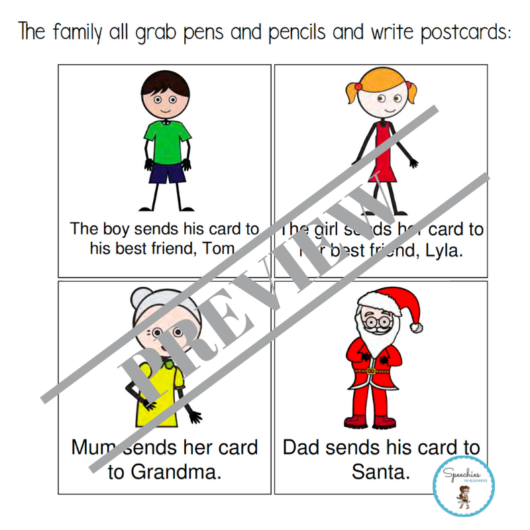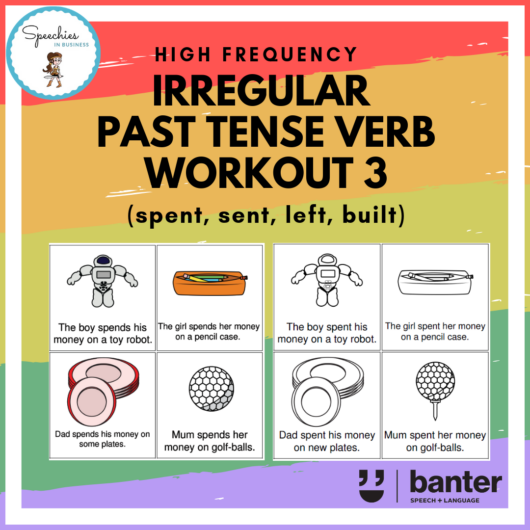Description
Introducing our ninth, no-prep slide-pack in our oral language (oracy) program for students in Years 2-5 (and older children learning English as an additional language and children with language, reading or other learning disorders).
Oral language skills are essential for understanding, speaking, reading, and writing at school. But too many of our Year 2-5 students have poorly or unevenly developed language comprehension and/or speaking skills to equip them for ongoing success at school.
Especially in the early years, information at school is communicated primarily in spoken language: in speech. Some researchers think that younger students spend up to 65% of their school day listening to spoken language (Palmer, 1997). The ability of children to learn, whether from delivered face-to-face by teachers, or via instructional videos or other materials, is highly dependent on their ability to understand and to express themselves in speech.
As children enter their third and fourth years of schooling, the emphasis of the curriculum changes from learning to read to reading to learn. A recent 5-year longitudinal study – starting when students were in Year 2 and ending in Year 7 – found that variations in reading comprehension amongst the children were almost completely explained by differences in decoding skills and language comprehension skills. The researchers found that differences amongst the children in language comprehension were almost entirely explained (95% explained!) by differences in:
-
grammar, including syntax and morpheme generation skills;
-
inferencing skills.
The researchers also found that oral language comprehension was a predictor of early and later growth of reading comprehension skills (Lervåg et al., 2017 – see citation below). The key findings of this study sit well with the growing body of evidence showing that improvements in oral language skills lead directly to improvements in reading comprehension, both with younger and older children (e.g. Fricke et al., 2013; Clarke et al., 2010).
What do we need to target to improve oral language comprehension?
-
Oral language is really complex: it involves lots of sub-skills, including the ability to process:
-
phonological information (e.g. speech sounds, syllables, stress, intonation);
-
grammatical information (e.g. different sentence types); and
-
prior knowledge and language content (including knowledge of vocabulary and relationships between words), to make inferences about the meaning of a message and predictions about what might happen next.
-
-
Language comprehension skills range from recalling facts (main ideas and details), to making inferences (filling in the dots), to evaluating facts (language reasoning). Some researchers have identified five key parts of comprehending oral language:
-
listening for the main idea;
-
identifying the facts and details;
-
making inferences and reasoning;
-
understanding the vocabulary; and
-
extracting and understanding the most important/relevant messages (Bowers et al., 2006).
-
So what, exactly, do these slides contain?
In these 19 pages of no-prep slides, we include language activities to pursue 10 oral language goals related to improved language comprehension and expression for school students. Suitable for children in Years 2-5 – as well as for older children with language, reading comprehension and other learning disorders, and people learning English as an additional language – the specific skills targeted in this pack include the following:
- Understanding and using complex sentences and instructions with subordinating conjunctions (e.g. “although”).
- Understanding high frequency idioms: “To read between the lines”.
- Formulating complex sentences from fragments using “until”, “while”, “if”, “because”, “before” and “after”.
- Comparing/contrasting objects using semantic features such as function, parts, location, and category.
- Understanding common prefixes/morphemes (e.g. “super-” and “-sede”).
- Expressing and justifying opinions.
- Describing and drawing inferences from pictures, and making predictions.
- Creating and telling true narratives.
We also include a wealth of links to practical, free, and evidence-based information and resources related to improving a student’s communication skills.
The slides can be:
-
used on a device, one-to-one, with a student who would benefit from extra work on their oral language;
-
shared with a small group; or
-
used for whole-class instruction.
The oral language activities can be delivered sequentially, or on a standalone basis.
Our students love these oral language activities. We hope that your find them just as engaging and useful with your students!
Principal sources:
- Lervåg, A., Hulme, C., Melby-Lervåg, M. (2017). Unpicking the Developmental Relationship between Oral Language Skills and Reading Comprehension: It’s Simple, but Complex. Child Development, in press, published online on 12 June 2017, see abstract here.
- Sullivan, J.R., Osman, H., & Schaefer, E.C. (2015). The Effect of Noise on the Relationship Between Auditory Working Memory and Comprehension in School-Age Children, Journal of Speech, Language, and Hearing Research, 58, 1043-1051.
